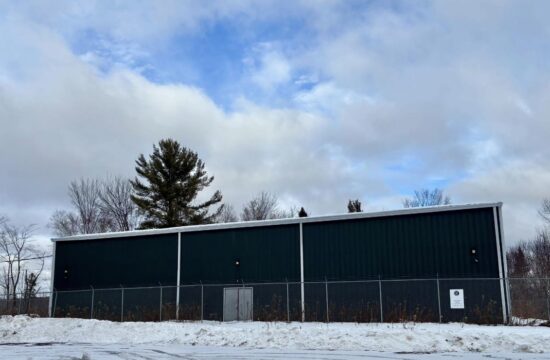By Emily Stonehouse
We’ve all made jokes about it. The fact that we as Canadians have ‘sorry’ built into our daily repertoire, right up there with toonie and double-double.
We say it when we bump into someone at the grocery store, when we cut off a car even when we had right-of-way, when we accidentally step on an ant carrying a crumb to its family.
Sometimes we mean it as a surface statement. A filler in the conversation, a knee-jerk reaction to a spilled-over situation.
Other times, it needs to mean more.
The United Church recently issued a formal apology for their treatment of the 2SLGBTQIA+ communities for mistreatment over centuries. For the way they’ve had doors slammed in their faces, the way they were taught they were not valid, the way they were made to feel like they didn’t belong.
To this, the United Church said sorry.
The Highland Hills United Church, with Reverend Max Ward at the helm, was quick to open their doors in response, a congregation that has long welcomed everyone and anyone, even if the overarching powers perhaps raised an eyebrow. Kudos to Ward and the community of that church for allowing progress to take shape.
But what does an apology mean? Sorry is so often said on the surface, we rarely need to take a deeper dive into wading the waters behind the word.
Sorry means forgiveness. It means accountability. It means a dedication to action. It means admitting fault. It means doing better. It means making an effort to tie and weave the frayed edges of relationships, pulling the fabrics of a torn quilt back together.
In the 1980s, the United Church apologized for their role in colonization, and decimation of Indigenous cultures across Canada. By 1998, another apology was warranted, this time for their specific actions around residential schools, and the puppet masters who opened the doors of torture for innocent children in the name of a greater being.
Sorry, they said.
An apology can only mean so much. It takes the edge off the action, removes the shooter from their arrow, lowers their fists on the fight.
But the shooting has already happened, punches already thrown. Communities who took the beatings are able to resurface, but their faces are bloodied and bruised from years of bullying.
Indigenous communities, 2SLGBTQIA+ communities, marginalized communities, It’s time to come up for air. And I give credit to the United Church, and their efforts to move forward, while admitting their flaws of the past.
But ‘sorry’ needs to come with a side of accountability. One word can’t bandage the bruises, but it can lay the welcome mat on the door to the future. It can allow communities to perhaps feel that they could be safe, could be seen, could be celebrated.
One day, one day soon.
Because as we wade the waters of the word, sorry needs to hit deeper than the surface.












